
Fast, affordable Internet access for all.

Massachusetts and New York officials hope to entice affordable housing property owners with new grant programs that would pay the retrofitting costs to expand high-speed Internet connectivity into decades-old affordable housing developments.
The programs aim to focus on the multitude of multi-dwelling units (MDUs) in those states, particularly housing developments built before the advent of the Internet.
With property owners and Internet service providers (ISPs) often reluctant to pay the costs of getting these buildings up to broadband speed, Massachusetts and New York have launched initiatives – using a portion of their federal broadband funds – to chip away at the digital divide in housing developments where a significant number of tenants live in buildings not wired to support reliable broadband or where the service is not affordable, thanks to agreements with monopoly providers.
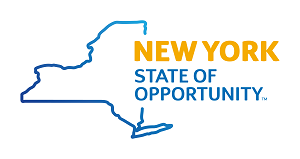
New York Bytes Into Broadband Affordability
In December, New York Governor Kathy Hochul’s office announced the state’s ConnectALL Office (CAO) was setting aside $100 million New York State received from the federal Capital Projects Fund (courtesy of the American Rescue Plan Act) to bring broadband connectivity to 100,000 affordable housing units across the Empire State.
In announcing New York's Affordable Housing Connectivity Program, Hochul said:
“With work, school, and essential government services going digital, affordable homes need affordable, reliable broadband, and this funding will help bolster our efforts to build housing equipped with the basic tools that New Yorkers need to succeed.”
Since it first broke ground in 2014, Longmont, Colorado’s community-owned NextLight fiber network has won numerous awards and inspired countless communities nationwide.
With its citywide deployment nearing completion, and counterproductive state legal restrictions in the rear view mirror, city leaders are now working to expand the network beyond city limits.
City officials tell ILSR that network construction has now crossed north of Colorado Highway 66, outside of city limits and into the Anhawa and Strawberry Circle neighborhoods. The extension will bring service to around 125 homes that previously had access to Longmont electrical utility service, but not broadband.
Longmont officials say this latest expansion is being financed entirely by subscriber revenues and money set aside for capital projects, with no bonding or other supplementary funds involved.
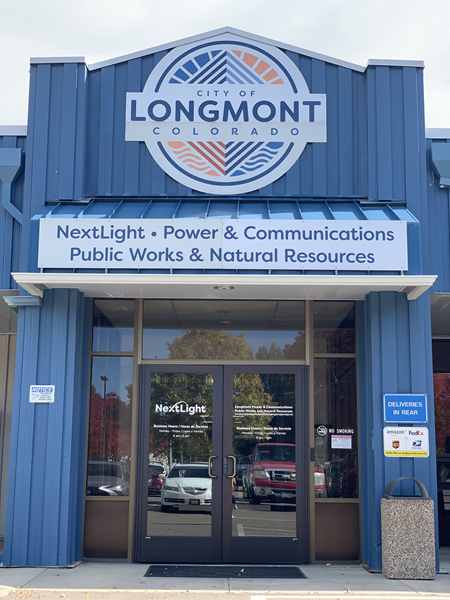
“We’ve been carefully evaluating our opportunities for expansion in order to make best use of the community’s resources,” NextLight’s Scott Rochat told ILSR. “Our total investment in this project is just under $300,000; based on our typical rate of adoption, we expect to see about a five-year payback. This also has the benefit of giving us a foothold on the north side of (Highway) 66 to help facilitate more expansion in the future.”
One year after launching a municipal fiber network, Dryden, NY officials say they’re making steady progress in their quest to expand affordable fiber broadband to the entire town of 14,500.
While the effort hasn’t been without obstacles, town leaders say the public response to their foray into broadband has been overwhelmingly positive.
“While there are challenges, we are continuing to make great progress in the buildout,” Dryden Town Supervisor Jason Leifer tells ILSR. “We have support from our residents, who continue to show interest in this project. We also have financial support from Tompkins County in the form of grants–and from neighboring municipalities who are interested in replicating our model.”
The city’s network began with a 50-home trial pilot trial in the southwest part of town. The broader $15 million network will be funded by a combination of bonds, $2 million in federal COVID-19 disaster relief funding, an Appalachian Regional Commission grant, and eventually, subscriber revenues.
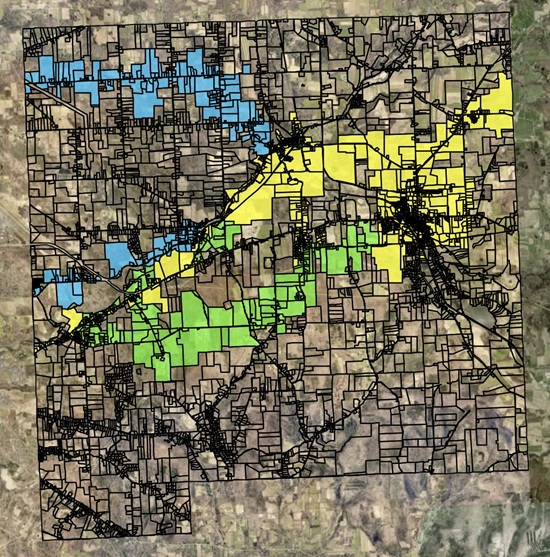
The town took a phased approach to deployment, first by connecting the backbone of the network in the southeast of the city, followed by a focus on the western and eastern halves of the municipality, respectively. The Dryden fiber website features a build map that helps locals track network progress.
“We have currently passed over 420 addresses with our buildout,” freshly-appointed Dryden Fiber Executive Director David Makar tells ISLR. “This includes over 150 rental properties – mostly single family homes and apartments – as well as many owner occupied homes and businesses. We are still in phase one, and as we move into the village of Dryden and the hamlets of Varna, Ellis Hollow, and Etna, we will be in phase two.”

This week on the podcast, Christopher is joined by Chad Crager, Broadband Executive Director at City of Fort Collins, to talk about the rapidly maturing city-owned network they call Connexion. From a feasibility study in 2018 to the lion's share of construction completed today, Connexion's story illustrates the value of being nimble when expectations meet reality. When planned use of existing conduit was thwarted by frozen and root-blocked pathways, the city bored new routes. When that led to increased construction costs, the city adjusted its target take rate upwards and hired dedicated, community-minded staff eager to be responsive to subscribers and build a sense of goodwill. And when developers argued they only needed a single fiber to run wireless for new apartment complexes, the city convinced them to plan for more growth in the future.
Along the way, the municipal network has committed to doing its part in the fight for digital equity. This includes the establishment of a fund with 6 percent of network revenues going to support low-cost plans and literacy efforts, to partnering with Larimer County on extending the network outside city limits, and more.
This show is 38 minutes long and can be played on this page or using the podcast app of your choice with this feed.
Transcript below.
We want your feedback and suggestions for the show: please e-mail us or leave a comment below.
Listen to other episodes here or see other podcasts from the Institute for Local Self-Reliance here.
Thanks to Arne Huseby for the music. The song is Warm Duck Shuffle and is licensed under a Creative Commons Attribution (3.0) license.
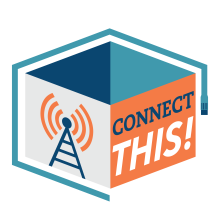
Join us Wednesday, November 1st at 3pm ET for the latest episode of the Connect This! Show. Co-hosts Christopher Mitchell (ILSR) and Travis Carter (USI Fiber) will be joined by regular guests Doug Dawson (CCG Consulting) and Kim McKinley (UTOPIA Fiber) to talk about the White House asking for $6 billion to keep the Affordable Connectivity Program alive through 2024, solutions for multi-dwelling units (MDUs), and NTIA relaxing the Letter of Credit rules for upcoming BEAD grant applications.
Email us at broadband@communitynets.org with feedback and ideas for the show.
Subscribe to the show using this feed or find it on the Connect This! page, and watch on LinkedIn, on YouTube Live, on Facebook live, or below.
On the one hand, Cleveland is one of the worst connected cities in the nation. On the other hand, it’s also a metro region with among the highest Affordable Connectivity Program (ACP) enrollment rates.
That’s because of the efforts of digital inclusion practitioners like Gina Burch, Program Coordinator at the Ashbury Senior Computer Community Center. In the second episode of our new Building for Digital Equity podcast, Gina talks about how they trained digital navigators to help enroll eligible Clevelanders into the program that provides a $30/month subsidy for low-income households to pay for home Internet service.
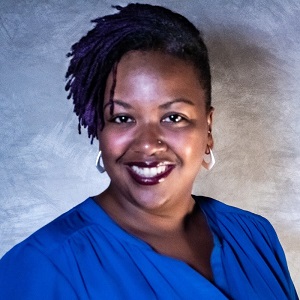
As a new nationwide campaign to boost ACP enrollment is underway, Gina touches on something that is key for enrolling skeptical would-be beneficiaries: the need for trusted messengers and organizations with roots in the community to be a part of the process.
She also highlights some of the challenges they are seeing on the ground and why having high-speed Internet access, as well as the digital skills necessary to get online, is about so much more than shopping or streaming movies. Gina talks about the link between Internet access and access to health care such as making Covid vaccine appointments.
You can listen to the 14 minute interview below or it can be played using the podcast app of your choice with this feed.
Also, you can listen to other episodes here or check out our long-running Community Broadband Bits podcasts here.
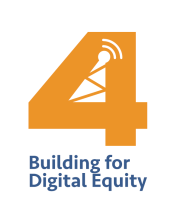
As she'll note in the beginning of this interview with Sean Gonsalves, Gina Birch loves her job as Program Coordinator at the Ashbury Senior Computer Community Center in Cleveland, Ohio. She discusses the remarkable transition in Cleveland from a city lagging in digital equity metrics to one toward the top of its game.
They discuss the Affordable Connectivity Plan, ACP, and some of the challenges associated with the digital divide. Finally, they discuss some of the lessons they have taken from the Net Inclusion conference.
This show is 14 minutes long and can be played on this page or using the podcast app of your choice with this feed.
Transcript below.
We want your feedback and suggestions for the show-please e-mail us or leave a comment below.
Listen to other episodes here or see other podcasts from the Institute for Local Self-Reliance here.
Thanks to Joseph McDade for the music. The song is On the Verge and is used per his Free-Use terms.
Last November we noted how New York City had scrapped its longstanding plan to build a promising open access fiber network. Not only did that stark reversal leave many partner ISPs high and dry after years of planning, some local community-run ISPs now say the city is forcing them to remove existing free service to affordable housing developments.
People’s Choice Communications, a small NYC cooperative cobbled together by striking Charter Communications workers, was one of several ISPs left in a lurch by the sudden reversal by the Adams administration.
Adding insult to injury, the ISP is now being told by the city to pull existing service provided for free to marginalized communities in The Bronx.
New York City’s original master plan was poised to be a game changer when it was first introduced back in 2020. The plan not only included a pilot program designed to bring affordable broadband to 450,000 residents of New York City Housing Authority (NYCHA) buildings, but a plan to spend $156 million on a pilot open access fiber network.
The proposal was to showcase the real-world benefits of the open access model, which data suggests results in significantly lower costs and higher quality service thanks to increased competition. If successful, the city would have then considered a bigger $2.1 billion plan to deploy such a network citywide, providing a template for major metropolitan areas nationwide.
New Mayor, Old Playbook
With the election of a new mayor, everything changed.
City Cast Las Vegas recently aired back-to-back podcast episodes about Internet access in the region, "Why Does Our Internet Suck?" followed by "Who Can Fix Our Internet?" As an organization that both produces stories like that as well as stars on them, as our own Sean Gonsalves did in the first episode, we wanted to share why we think these are well done and should serve as good lessons for others covering these issues.
The interviewer, Dayvid Figler, is on point with questions and the show offers a concise description of the challenge and potential solutions. It turns out that Dayvid also worked as a trial lawyer though, so perhaps not many reporters will be able to simply summon that level of command to shape the conversation. Nonetheless, these two shows are wonderfully informative.
The first episode sets up the second, which is where I want to spend more time. Dayvid's questions help Sean explain what broadband is and why some neighborhoods are left behind - one of the more common questions we see on this subject. They discussed who owns existing networks and what fiber is and why we should care.
Dayvid lays the groundwork for the second show by asking why competition hasn't solved the problem of why people are frustrated with their Internet service and Sean explains that while there is no one-size-fits-all solution, the Institute for Local Self-Reliance believes communities need to take action to improve their service.
The second episode features Brian Mitchell, Director of the Nevada State Office of Science and Innovation. No relation to me, Christopher Mitchell, or my boss, Stacy Mitchell (none of us are related - there are just a lot of Mitchells, ok?).
*This is the first installment of an occasional profile on Local Community Broadband Champions where we focus not so much on the technology, construction, and financing of a community network build, but on the personalities of the people who make it happen.
When Devin Weaver isn’t vibing at the Otto Bar or checking out the underground music scene at Metro Gallery, or even playing his bass guitar at home, the 28-year-old network engineer enjoys spending time amid the web of wires in storage closets inside low- and mixed-income apartment buildings dotting the city’s landscape.
It’s where his network design handiwork all comes together, snaking through the buildings to the routers installed in individual apartment dwellings, enabling residents to get gig speed Internet service.
That’s on par with what the regional monopoly provider Comcast offers city residents who can afford it. But in the buildings that Devin has made his technical playground, hundreds of financially-strapped households who subscribe to the fledgling community network he oversees get it for free – thanks to the philanthropy of dozens of organizations including the Internet Society Foundation, the France-Merrick Foundation, and the Digital Harbor Foundation.
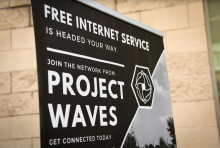
Born and raised in Baltimore, Devin works for Project Waves, a non-profit organization founded in 2018 by an old high school classmate of his, Adam Bouhmad, to bring broadband to mostly low-income households in Baltimore City.
A Small, Rising Wave of Connectivity